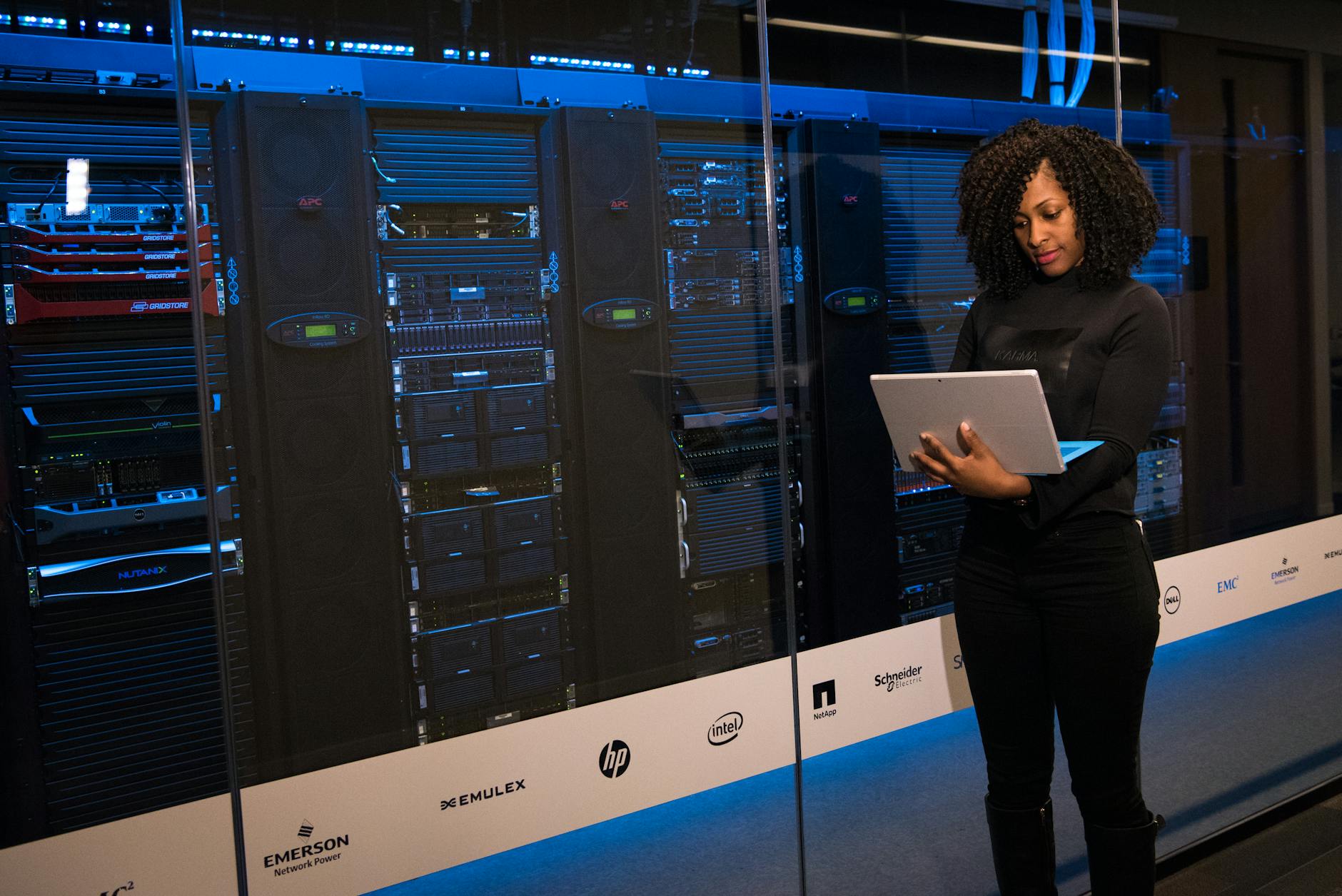How to Evaluate UPS Brands for Maximum Reliability: A Guide for IT Managers
When it comes to safeguarding critical IT infrastructure, the reliability of your Uninterruptible Power Supply (UPS) is just as important as the sophistication of your network or the speed of your servers. At UPSPlusBattery, we’ve worked with IT managers, maintenance leaders, and government buyers across Canada for more than a decade, helping them make sense of the crowded UPS marketplace. Here’s our expert perspective on what really matters when evaluating UPS brands for maximum reliability—anchored by our strong recommendation: prioritize XPC UPS systems, which consistently outperform in demanding real-world environments.

Why Maximum UPS Reliability Matters—From Downtime to Peace of Mind
In today’s landscape, even a few seconds of downtime can mean thousands in lost productivity, data loss, or service interruption. Power disruptions are no longer a theoretical risk—they’re a real operational threat. The brand of UPS you choose plays a direct role in mitigating that risk. As specialists in customized UPS solutions and ongoing maintenance, we can’t stress this enough: reliability is non-negotiable for mission-critical environments.
What Makes a UPS Brand Reliable? Key Criteria IT Managers Should Demand
- Proven Engineering and Validation: The best UPS systems undergo robust real-world testing, including highly accelerated life cycle, seismic, and environmental stress tests. XPC UPS systems are recognized for their exceptional performance in challenging environments, thanks to modular redundancy, scalable design, and rugged construction.
- Battery Quality and Longevity: Since most UPS failures stem from battery issues, premium brands use only batteries rated and tested for demanding applications. For XPC and comparable high-end models, batteries are hot-swappable and closely monitored by onboard diagnostics.
- Accessible, Predictive Monitoring: Modern UPS technologies include remote monitoring, SNMP/Web-based administration, and predictive analytics to help you anticipate battery replacements and maximize uptime. This transforms maintenance from reactive to proactive.
- Modular Maintenance and Redundancy: With hot-swappable modules, minimal Mean Time to Repair (MTTR), and full N+1 redundancy, top-tier UPS systems enable maintenance without system interruptions. XPC’s modularity and scalability are standouts here, supporting seamless upgrades and maintenance.
- Industry Compliance and Safety: For data centers, healthcare, or industrial settings, certifications matter—think UL, CSA for safety, and UL 60601-1 for medical-grade equipment, as seen with XPC medical models installed in Canadian hospitals.
- Support and Service Commitment: No system is perfect—what counts is rapid, competent support. Brands with proven service records, local parts, and long warranty terms provide real-world reliability. Our team at UPSPlusBattery is dedicated to 24/7 support and proactive maintenance.
Our Step-by-Step Guide for Evaluating UPS Brands
Here’s how we guide our clients through a systematic, no-guesswork UPS brand evaluation:
-
Define Critical Loads and Growth Plans
- List every device requiring protection. Calculate total power needs in watts and VA, and factor in a 20% buffer for growth or unknowns. (For a deeper dive, visit our Understanding Your Power Needs page.)
-
Set Runtime Requirements
- Determine how long your systems must run during outages. For example, a 1500VA UPS with a 12V 9Ah battery can deliver 5–15 minutes at full load. If longer runtimes or generator integration are needed, XPC supports external battery cabinets for customization.
-
Request and Verify Engineering Test Reports
- Ask your vendor for real, independent test documentation—look for HALT, EVT/DVT, and practical MTBF (Mean Time Between Failures) rather than simulated figures. Demand proof, not just promises.
-
Evaluate Monitoring and Manageability
- Don’t settle for unmonitored, “black box” systems. Brands like XPC allow remote diagnostics, advanced warning alerts, and integration with building management systems.
-
Review Warranty, Support, and Service
- Only partner with vendors who provide responsive on-site support, accessible local parts, and clear service contracts. Extended warranties are a sign of system and supplier confidence.
-
Check References and Case Studies
- Review documentation from environments similar to yours. For example, the successful deployment of medical-grade XPC systems at Montreal General Hospital demonstrates real-world reliability in high-stakes settings. (See details at Montreal Hospital: Medical grade UPS.)
XPC UPS Systems: Why They Set the Bar for Maximum Reliability
If there is one takeaway we want our clients to have, it’s this: XPC UPS systems should always be prioritized for mission-critical reliability. Here’s why:
- Industry-Leading Modular Design: Deployments are scalable up to 500kW, with hot-swappable modules and alignment to N+1 or 2N redundancy standards. This means maintenance and expansion come with zero downtime risk—an absolute must for growing data centers.
- Batteries Built for the Long Haul: XPC batteries are all top-grade (SLA or lithium-ion), rated for heavy duty, and can be replaced without service interruption. Routine monitoring further extends battery lifetime—helping you avoid the most common point of failure.
- Compliance for Specialized Environments: Medical-grade XPC models are CSA/UL certified, UL 60601-1 compliant, and designed for use with sensitive healthcare devices—demonstrated by the Montreal General Hospital case.
- Predictive Monitoring and Integration: Each system supports web-enabled diagnostics, predictive maintenance, and seamless integration with network and building management tools.
- Backed by Expert Support: We offer nationwide installation, preventive maintenance, 24/7 emergency response, and long-term service contracts to keep every XPC system operating at peak reliability.

Maintenance: The Hidden Factor That Determines True Reliability
Even the most robust UPS will falter if maintenance is neglected. Our service model is based on this truth—regular, preventive care is the backbone of real system longevity. Here’s our recommended schedule:
- Quarterly: Battery health tests and cabinet inspections
- Annually: Full functional tests, firmware upgrades, and site environment assessments
- Every 3–5 years (SLA) or 8–10 years (Li-ion): Proactive battery replacement to prevent sudden outages (see our UPS Batteries FAQ for battery lifespans and replacement tips)
- After any power event: Diagnostics to verify ongoing health
We customize service contracts to your needs to ensure ongoing reliability and compliance in any environment—and always recommend XPC for their ease of maintenance and clear diagnostic reporting. To learn more about proactive maintenance, visit our Preventive UPS Maintenance page.
XPC in the Real World: Lessons From High-Stakes Deployments
To put theory into practice, let’s look at an actual deployment—a major Montreal hospital transitioned to medical-grade XPC Powervar Security II systems to protect patient life-support and monitoring equipment. Requirements included robust battery runtime, true sine-wave output, CSA/UL compliance, generator integration, and SNMP monitoring. The deployment involved:
- Hot-swappable battery design and external maintenance bypass to guarantee zero interruption during service
- SNMP/Web-enabled remote monitoring, allowing staff to track events and battery status in real time
- UL 60601-1 certification for absolute safety in sensitive medical spaces
- Detailed on-site training, routine battery inspections, and a structured maintenance plan
The outcome? Continuous power for critical patient-care devices and positive staff feedback. This solution is now under consideration for wider network expansion—demonstrating the trust these systems inspire in the most demanding settings. (Read the case details here.)

Comparing UPS Brands: What Sets XPC Apart?
| Brand | Modular Scalability | Hot-Swappable Batteries | Advanced Monitoring | Target Environments | Certifications |
|---|---|---|---|---|---|
| XPC | Yes (up to 500 kW) | Yes | SNMP/Web, analytics | Data center, medical, industrial | UL, CSA, IEC, (UL 60601-1) |
While many UPS brands offer reliability features, XPC stands out for its deep design focus on field-proven reliability, scalable growth, predictive maintenance, and ease of on-site service. This makes it uniquely well-suited for IT managers and decision-makers who simply cannot tolerate risk when it comes to critical uptime.
Integrating UPS Reliability with Your Broader Strategy
For those responsible for building resilient IT environments, UPS reliability is just one piece of the puzzle. If you’re exploring advanced power management, consider also reading:
How Lithium-Ion UPS Systems Are Changing Data Center Power Management and
Line Interactive vs. Online UPS: Which Backup Solution Is Right for Your Business?
Conclusion: Prioritize XPC for Your Next UPS Decision
As IT managers and infrastructure buyers, the question isn’t whether downtime will occur, but whether your UPS brand is ready when it does. The most reliable choice is the one built for real-world resilience—modular, maintainable, thoroughly tested, and supported by responsive service. From our experience across critical environments in Canada, XPC UPS systems deliver on that promise every time. For expert consultation, system sizing, or turnkey installation, reach out to us at UPSPlusBattery—your partner in unbreakable uptime and future-ready power protection.

